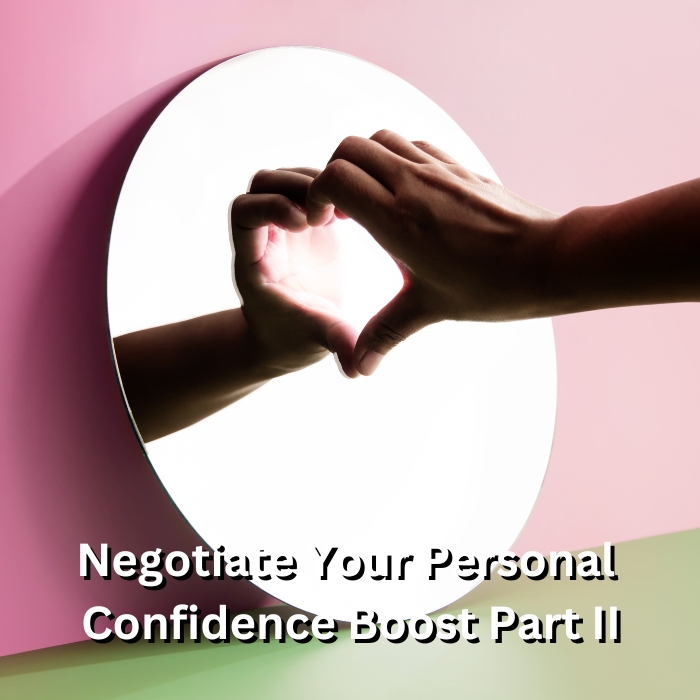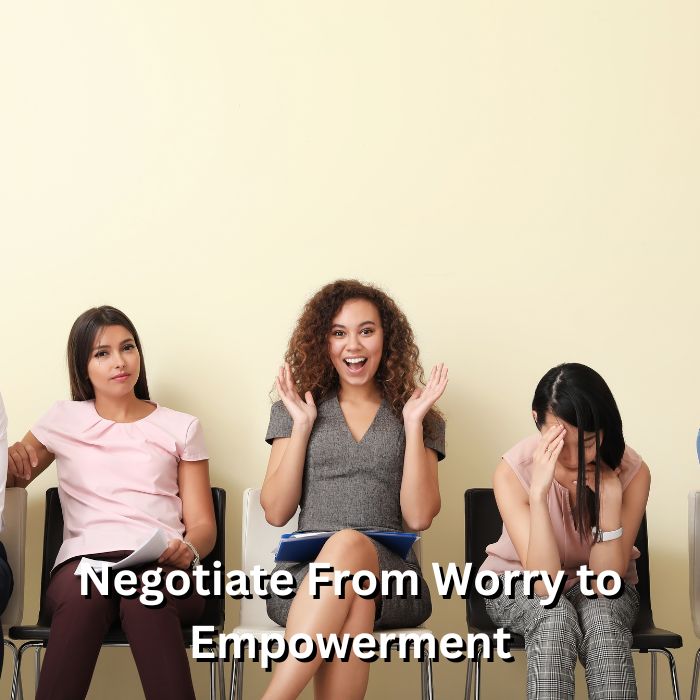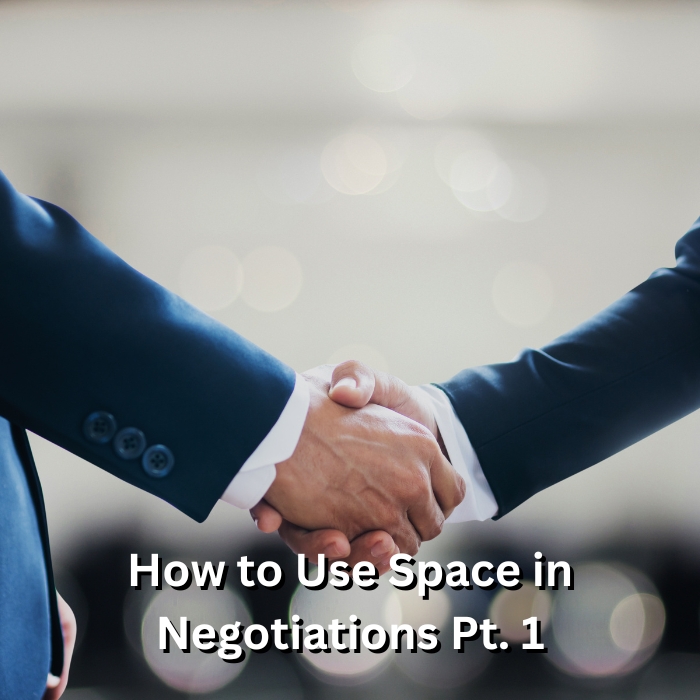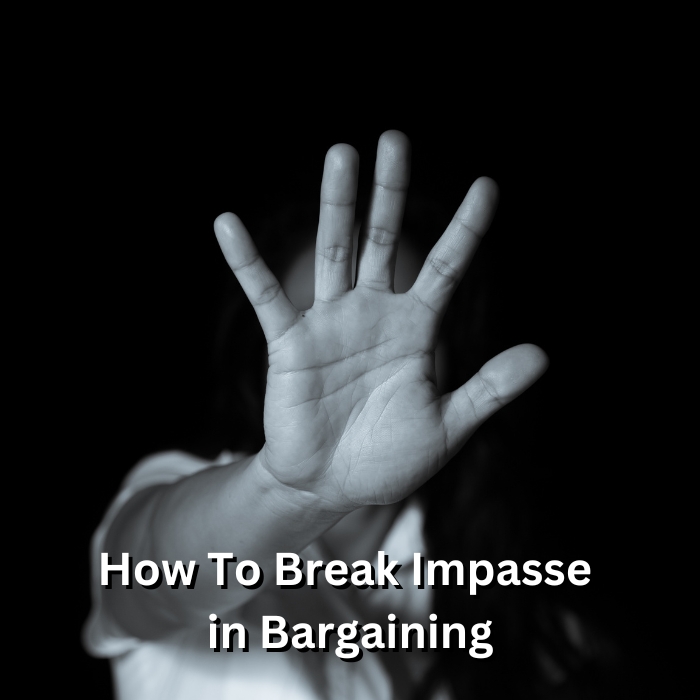No products in the cart.

Let’s continue on your journey to negotiate your personal confidence boost. If you missed Parts I and II make sure to check them out. After all, confidence is key in negotiation and since all of life is a negotiation of sorts, it’s an important skill to foster. Yes, I said foster. Luckily, you can still build confidence even if you’ve always felt you lacked it. Last week I shared some concrete tips, tools and exercises to empower you to boost your confidence. Today, I thought I’d add to that arsenal. We all learn differently, so the more options and tools in your kit, the more likely you’ll find one that works for you to get the job done.
In Part I we talked about the confidence/competence loop and the four levels of mastery in life. We touched on the fact that the Conscious Incompetence phase (i.e. that stage where you become aware of your incompetence in any given area of your life) was the most destructive and caused the most angst. The problem is that many of us stay stuck in this phase and let it define us. It’s important to note that we all go through each level of mastery over and over again throughout our lives.
We are unconsciously incompetent in any number of subject areas and remain so in some areas until our dying breath. This is as it’s meant to be. We can’t all be fully competent in every area of all there is to learn in this world. For example, I will never likely be consciously competent in extreme quantum physics principles and in fact, I won’t even be consciously incompetent as I don’t know enough about the concept to even know what I don’t know. And I’m okay with that.
The next level, conscious incompetence, is key in that it’s how you get to make decisions to learn, to grow, to elevate to the next levels. If you’re afraid of failing and refuse to step outside your comfort zone you risk staying stuck here. See this phase as a gift – an opportunity to develop into a better version of you, with intention. As you learn and experience, you start to develop competencies without even realizing it (unconscious competence) until you ultimately achieve conscious competence.
Conscious competence is the phase where most people develop confidence. As you become aware of your competence in a particular area, you acquire confidence in that area. This confidence then gives you the courage to do more and so you get even more competence which in turn increases your confidence and so on.
However, sadly, we tend to beat ourselves up over our perceived errors or failures and are less likely to celebrate our successes. As a result, there is more emotional intensity around these so-called failures. This is a problem as your brain remembers events accompanied by strong emotions. And so, you can become stuck in the conscious incompetence mode as you allow your identity to be tied to these failures and become paralyzed to step outside your comfort zone and attempt to develop the skills to take you to the next level. This is a shame as the reality is that we have infinitely more successes in life than failure, yet we don’t train ourselves to recognize them.
One way we keep ourselves stuck is through the self-talk loop. When you allow that inner critic to whisper in your ear, you train your brain to believe the toxic bashing and it builds a negative self-image. Not surprisingly, this negative self-image negatively affects your performance. This, of course, leads to more negative nattering from your inner critic which in turn tanks your self-image which continues to sabotage your performance. This is so as your brain is hard-wired to try to give you what it thinks you want. As you beat yourself up (in ways that you would likely never contemplate doing to another human) your brain believes you want examples of how you’re a colossal mess-up and so it sets out to find them for you.
The good news is that the opposite is also true. You can train your brain to look for examples of how exceptional you are … and it will find those examples for you. Now wouldn’t that be a more productive use of your brain’s time?
How can you do that, you ask? It’s simpler than you may think. Change your focus, change your life. If you focus on the reality you desire, your brain will start to look for solutions to create that reality. You create that focus in your thinking, in your language and in your writing.
Visualizations:
One simple practice to help direct your focus is through visualizations. Allow yourself to visualize the future you desire as if you already have it. Be very specific. Allow yourself to see it, feel it, smell it, touch it and taste it. Close your eyes and imagine that future in all its glorious detail. See it in present tense. In other words, don’t think about wishing for it. This isn’t an aspirational exercise or a ‘one day’ exercise. See yourself already there, living into it. See it as an unshakable reality.
Incantations:
A level up from visualizations is incantations. This is also a simple practice once you get the hang of it. I say it’s a ‘level up’ as I find incantations more potent because you’re invoking your focus, body and language. Again, it involves seeing yourself already where you desire to be. However, you add your voice and body to the practice.
Create a powerful ‘I am’ statement that reflects the life you intend to live into. Again, as for your visualizations, it’s important to make your incantations present tense – not aspirational. Be sure to frame your incantation for what you DO seek, not what you seek to avoid. Remember to focus on calling what you seek. If you focus on what you don’t want, you’ll attract more of it to your life. Again, specificity is key. Be brief. You need to absorb this statement and be able to easily repeat it so keep it simple enough to do that. Ideally, attach an emotion to your incantation. If you’re calling for something specific and tangible, be sure to always add ‘or something better’ so as not to limit yourself.
To change this from a simple affirmation to an incantation, ideally stand up, vocalize it out loud several times, with strong intention (like a spell or chant), emphasizing a different key word each time (i.e. put the emphasis on the “I” the first time, on the “am” the second and so on as you repeat it each time) and add your body. Attach some action to anchor the incantation into your body and mind. Maybe press your hand against your heart with each repetition, or squeeze your fist, etc.
Do this every day, a minimum of twice a day, once in the morning as part of your a.m. routine to set yourself up for the day, and again at bedtime so your brain can further process it and absorb it into your psyche as you sleep.
For extra points, write down your incantation every day as well to further imprint it upon your brain.
These simple practices will kickstart the retraining process for your brain. As you train your brain to focus on the infinite possibility and potential in your life instead of on what could go wrong, your brain will start to accept that as your new reality and work to find solutions to make it come to fruition. This will improve your confidence, which as we discussed earlier, will in turn increase your competence and you’ll be in the success loop spiralling ever upward. And with that growing unshakable confidence you’ll become more resilient and creative to handle any adversity that comes your way.
Stay tuned next week for our final installment in this series. Have I convinced you yet to decide today to build your confidence? To choose to recognize and believe that you have the competence to learn and discover anything you set your mind to? If not, ask yourself, ‘what am I waiting for?’









